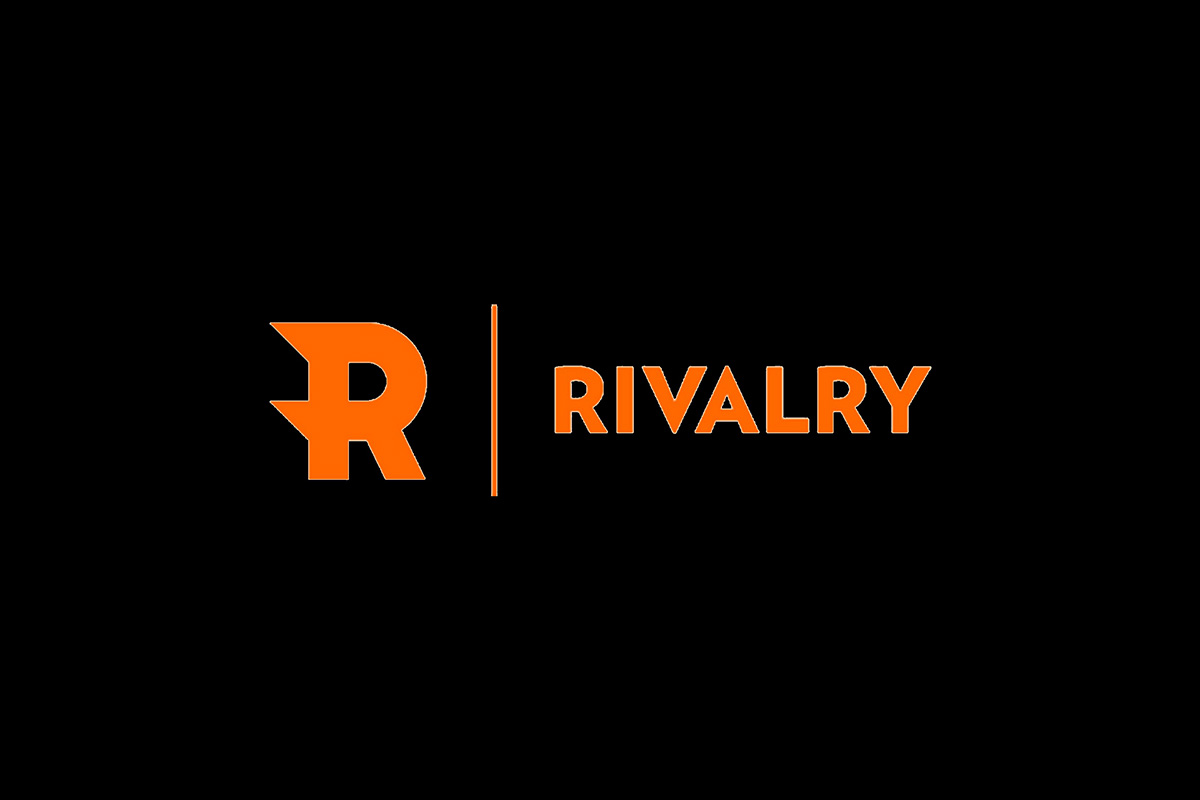Canada
Exclusive Q&A with Sim Harmon, founder of Kutt

- Kutt sounds like a fascinating concept. Tell us more about the business model. How does Kutt differ from a regular P2P betting exchange, for example, and what’s its USP (unique selling point)?
Kutt is a P2P sports and social betting platform that allows friends and strangers to bet real money on the outcome of sports, politics, and pop culture events. Think of it as a much better version of Venmo, with a focus on betting: the ultimate “put-your-money-where-your-mouth-is” platform.
The biggest differentiator between Kutt and a traditional P2P betting exchange is our added focus on the social aspect of betting – so we refer to Kutt as a “social betting exchange.” Betting is an inherently social activity, especially here in America. We have fantasy football leagues, group chats with friends, and watch-parties at bars for our favorite teams. Compared to a traditional sportsbook, a regular P2P betting exchange offers much better odds/pricing for its users, but does not offer any meaningful social experience/benefit for the user. That’s where we come in. Our opinion is that you can offer users better pricing and also give them an engaging platform that they’ll want to enjoy with their friends.
- Why did you think it was important to take a different direction than the big sports betting operators?
There hasn’t been a ton of innovation in the sports betting industry, because it’s been dominated (and gatekept, if we’re calling a spade a spade) by the big operators who all run “traditional” books. Consumers have suffered as a result…bettors have to put up with high-vig odds, unfair lines, betting limits if you win, and poor customer support. Let’s face it – traditional books are all the same. They may have a different front-end, sure, but they all offer roughly the same bets, odds, and features.
Consumers are finally waking up to this realization, and have started to demand a better way of doing business. This demand, coupled with some ambitious operators wanting to test new models, is directly responsible for a lot of the change you’re seeing across the betting industry. We’ve started to see P2P operators, “stock market for sports” operators, micro-betting operators, prediction markets, and other models pop up over the last year.
Our team at Kutt is super bullish on the P2P/exchange space in particular. An exchange eliminates a lot of the issues we listed earlier in this answer because it puts control in the hands of the user, and customer-friendly business models usually win out in the end. We’re just adding our own little twist to it.
- The social element is obviously crucial to Kutt. Do you also think social also has a part to play in mainstream sports betting? There have been recent attempts to “socialize” and gamify sports betting platforms? Will this work?
Social has a major role to play in mainstream sports betting and we believe that “social betting” – with a focus on social P2P/exchange betting – is the future. In our online era, everything has become social, and there’s no reason to think that the sports betting industry will be immune.
For most people, watching sports is already a social activity. You watch the game with a friend, send some thoughts to your group chat, and then go to Twitter to see what everyone else is saying. So now you just add the betting element to it, and we think this will be a pretty seamless transition for most, especially the younger generation. They grew up on social networks so the action of participating in an “online community” is ingrained in their psyche.
Going forward, operators will have to decide how much of their product will be dedicated to “social-first” features. For us, that number will be closer to 100% than 0%, but that doesn’t mean that social is the end-all-be-all.
- Tell us about your roadmap. When do you plan to launch, and then what are your long-term plans, in terms of product development and building the brand?
Kutt just launched on the App Store and we should be on Google in the coming weeks. We will be launching with the four major US leagues (plus CFB+CBB) first, but will be adding new sports in the coming months. Then we will add props, futures, and non-sports markets (politics, eSports, pop culture, etc.).
We’ll continue to focus on a product that truly benefit the end-user. We’ve already incorporated features that allow users to create their own lines and payouts, and are now focused on implementing social features that build community within our app. We’re looking to become the “social network” of choice for fans who not only post about their team on a Kutt-hosted message board, but also back up their trash talk with an actual bet.
To build our brand, we’ll embrace the social bettor and will insert ourselves into places where these people can be found; think bars, tailgates, and sporting events where social betting is already happening. Look for Kutt at a sporting event near you soon!
- Which specific markets do you plan on targeting?
The beauty of social betting is that everyone does it, since everyone has an opinion. Even people who have never placed an “official” bet in their life have probably uttered the words “I bet that doesn’t happen” to someone at some point during a conversation. These informal “handshake” bets are everywhere, from sporting events to bars to work events to family reunions. Kutt will provide a fun and safe platform for social bettors of all shapes and sizes in the jurisdictions where we can operate.
There are, however, certain markets where ego and trash talk are a bit higher, and where payment for a winning bet is harder to collect on: college campuses. The biggest issue with betting people you know is actually collecting money from a friend or acquaintance, and nowhere is that more true than the younger demographic. Millions of college kids across the US can probably name someone who has flaked on a bet and/or not paid someone they owe on time.
- Is Kutt the future of gambling?
We think so, obviously. Kutt should benefit from the industry’s move towards social gaming as well as the macro tailwinds in the space: greater media exposure, changing consumer demand, less-restrictive regulation, and increased investment. You’ve already seen the media attention that P2P has gotten over the last several months, and it’s hard to put the genie back in the bottle once it’s out. The traditional model has to change, and the companies who get ahead of that change will be the winners in the space.
Kutt has a pretty compelling product. We offer fully customizable odds, better pricing than the traditional books, interactive social features, and a sense of community, among other things. We also have a pulse on what the younger generation wants, which looks very similar to the product we’re building.
We’re aware of the challenges we face within the industry. It’s an uphill battle fighting against the traditional books, who have basically written a lot of the legislation that you see in different states today. Overly burdensome regulations choke out a lot of startups as well. It’s time for the political class to wake up, and start creating a more balanced playing field that encourages new ideas and innovation. The consumer hurts when innovation is stifled.
With all that said, we’re confident that social betting is the future of this industry. And we’re positioning ourselves to capitalize on this shift when it does come. Now go check us out at www.kutt.com or by searching for “Kutt” on the App Store. Thanks!
Powered by WPeMatico
Canada
Rivalry Corp. Announces Significant Reduction in Operations and Evaluation of Strategic Alternatives

Rivalry Corp. announced that its Board of Directors has approved a significant reduction in operating activity as the Company evaluates strategic alternatives in respect of its assets and operations.
The Company is engaged in discussions with third parties regarding potential transactions. However, in light of recent performance volatility, the Board has determined to materially reduce the scale of operations while assessing whether a strategic transaction or other alternative can be advanced.
Effective immediately, the Company is implementing substantial cost reductions, including a significant workforce reduction and reduced operating expenditures. The Company has paused player activity on its platform and is facilitating player withdrawals in the ordinary course.
The Company is assessing a range of potential alternatives, which may include asset-level transactions, corporate transactions, restructuring initiatives or other strategic outcomes.
Given the Company’s reduced operating scale and the ongoing evaluation process, there can be no assurance that any strategic alternative will be completed or that operations will continue in their current form.
The post Rivalry Corp. Announces Significant Reduction in Operations and Evaluation of Strategic Alternatives appeared first on Americas iGaming & Sports Betting News.
Alex Malchenko
Evoplay Strengthens Canadian Presence with BetMGM Partnership

Evoplay is celebrating another milestone in its regulated-market journey with a new launch in Ontario, teaming up with BetMGM to bring its games to one of Canada’s most dynamic and competitive jurisdictions.
The rollout introduces 18 Evoplay titles to BetMGM Casino in Ontario, carefully selected to deliver long-term engagement and appeal to a wide range of player preferences. The first wave includes proven performers such as:
• Hot Triple Sevens
• Hot Volcano
• Gold of Sirens Bonus Buy
• Inner Fire Bonus Buy.
These are games that have already demonstrated strong results across multiple regulated markets.
This launch marks another confident step in Evoplay’s Canadian expansion, reinforcing the company’s commitment to aligning its content with local market requirements, player expectations, and regulatory standards.
Alex Malchenko, Head of Sales at Evoplay, said: Ontario continues to set a high standard for regulated online casinos, making it a market where the right partnerships truly matter. Collaborating with BetMGM allows us to expand our reach with a portfolio that has already performed strongly across multiple areas and territories.
Oliver Bartlett, VP of Gaming at BetMGM, said: “Partnering with Evoplay adds a strong selection of proven, high-performing titles to our growing portfolio in Ontario.”
The post Evoplay Strengthens Canadian Presence with BetMGM Partnership appeared first on Americas iGaming & Sports Betting News.
Bet Rite
Spintec Expands into Canada with Bet Rite

Spintec is expanding its footprint in North America by partnering with Bet Rite in the Canadian gambling sector. As a prominent developer of electronic table games, Spintec invested significant effort into locating a partner who comprehends the distinctiveness of the Canadian casino industry. Bet Rite is taking on the position of Spintec’s distributor in Canada, leveraging its established reputation and substantial industry knowledge. This collaboration combines global innovation with local expertise in a partnership that is helping Spintec advance its expansion objectives in North America.
Bet Rite’s establishment is rooted in years of industry expertise. The firm focuses on providing top-notch gaming solutions designed specifically for Canadian operators. They aim to provide a sole vendor connection that grants access to numerous top-tier product lines, establishing them as a reliable partner nationwide.
For Spintec, collaborating with a company that prioritizes service, product excellence, and enduring relationships is vital, and Bet Rite is dedicated to prioritizing customer needs. With a solid sales network and a reputation for dependability, their market stance is highly strong.
Through this collaboration, Spintec is guaranteeing that their creative products receive backing from an attentive, community-focused service. The initial product line to be launched in the Canadian market will be Spintec’s premier Charisma line. Charisma’s design, flexibility, innovation, and wide range of product customizations will undoubtedly make it a top seller in Canada as well.
Billy Maclellan, Bet Rite President, says: “Our company has grown by offering best-in-class suppliers the local support that they need. Spintec fits the mold perfectly and together we are well placed to make this partnership a glowing success”
Goran Sovilj, Spintec’s Chief Commercial Officer, agrees: “Bet Rite’s deep understanding of the Canadian market makes this alliance very promising. We are always excited to introduce innovative and exciting products to new markets, especially when our distributors are as experienced and knowledgeable as Bet Rite.”
The post Spintec Expands into Canada with Bet Rite appeared first on Eastern European Gaming | Global iGaming & Tech Intelligence Hub.
-

 Amusnet7 days ago
Amusnet7 days agoWeek 7/2026 slot games releases
-

 Brino Games7 days ago
Brino Games7 days agoQTech Games integrates more creative content from Brino Games
-

 Aphrodite’s Kiss7 days ago
Aphrodite’s Kiss7 days agoLove on the Reels: Slotland Introduces “Aphrodite’s Kiss”
-

 Alex Malchenko7 days ago
Alex Malchenko7 days agoEvoplay Strengthens Canadian Presence with BetMGM Partnership
-

 3 Oaks Gaming7 days ago
3 Oaks Gaming7 days ago3 Oaks Gaming Enters Spanish Market
-

 AMLA7 days ago
AMLA7 days agoAMLA Launches Public Consultation on Three Draft Regulatory Acts
-

 Latest News7 days ago
Latest News7 days agoRed Papaya Presents: Lucky Rainbow Rush Adventure
-

 3 Oaks Gaming7 days ago
3 Oaks Gaming7 days ago3 Oaks Gaming Secures Registration from MINCETUR to Enter the Regulated Peruvian Market



















